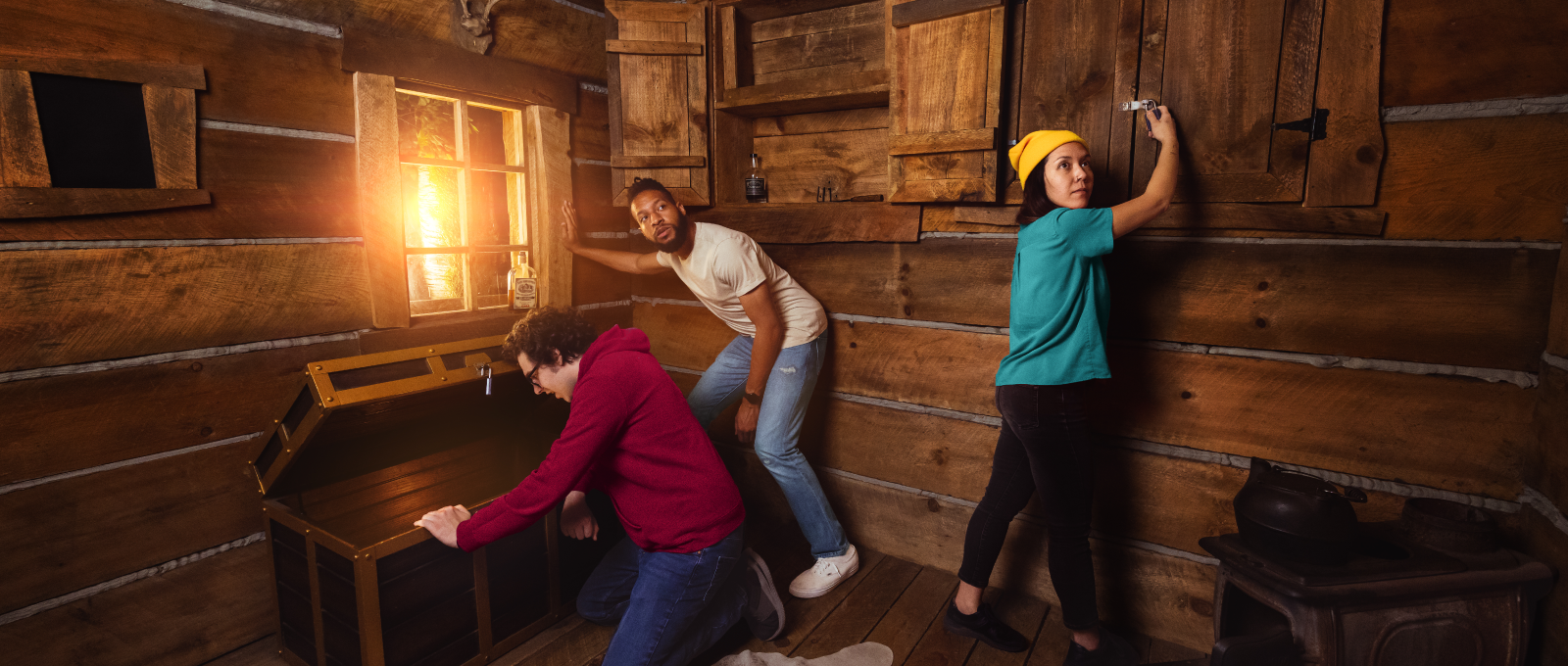Enjoyable and Challenging Escape Room-- Strategy Your Following Journey
Enjoyable and Challenging Escape Room-- Strategy Your Following Journey
Blog Article
Group Methods: Just How to Collaborate Efficiently in a Getaway Space
Groups should actively listen to each member's understandings, assign functions that line up with private staminas, and preserve regular check-ins to make certain emphasis and stop redundancy. By fostering an environment that values cohesion and adaptability, teams can dramatically enhance their effectiveness and success prices.
Establish Clear Communication

To help with clear communication, it is essential to designate a central factor of contact for information dissemination. This function entails summarizing findings and suggested techniques to make certain everybody continues to be on the exact same page. Furthermore, adopting an organized approach to conversations can stop disorderly exchanges. As an example, brief, focused updates from each team participant can maintain the group notified without frustrating them with info.

Appoint Roles Purposefully
While clear interaction establishes the foundation for reliable synergy, appointing functions tactically makes certain that each staff member's staminas are made use of properly. In an escape space situation, the time-sensitive and intricate nature of obstacles requires an efficient approach to task delegation. By recognizing and leveraging specific competencies, groups can maximize their analytic capacities and improve overall performance.
Somebody with an eager eye for detail may excel in finding covert objects, while a sensible thinker can be better suited to fixing problems. This role frequently needs solid organizational and social skills.
Second, guarantee that functions are versatile and versatile. As brand-new obstacles emerge, the team has to be able to pivot, reapportioning tasks as needed. This flexibility assists maintain energy and avoids bottlenecks that might take place because of inflexible duty jobs.
Eventually, a calculated approach to role task not just makes best use of the toughness of each staff member but likewise cultivates a natural atmosphere, driving the group towards an straight from the source effective getaway.
Utilize Diverse Abilities
Identifying and utilizing the diverse skills within your team can dramatically raise your performance in a getaway space. Each employee brings special strengths to the table, and properly leveraging these capabilities can quicken analytical and enhance general efficiency. For instance, an employee with solid logical abilities might succeed at figuring out complicated codes or patterns, while another with eager empirical capacities might swiftly identify concealed hints that could overlook.
Encourage team participants to voice their understandings and ideas promptly, making certain that all possible solutions are taken into consideration. Additionally, appointing jobs that straighten with each member's toughness can prevent bottlenecks and make sure that progression is constant.
Moreover, variety in skills commonly equates to diversity in thinking designs, which is indispensable in a retreat room setting. While some obstacles may require sensible thinking and precision, others may take advantage of imaginative and association of ideas. By identifying and leveraging this variety, groups can resolve a broader series of difficulties better, therefore enhancing their chances of an effective escape.
Manage Time Properly

Identify noticeable challenges and divide tasks based on group participants' strengths, guaranteeing that no one is still. This method can aid maintain the group concentrated and stop time from sliding away undetected.
Additionally, stay clear of one-track mind. If a challenge is taking as well long, revolve staff member or relocate on to one more obstacle, returning later on with fresh point of views. Interaction is extremely important-- keep every person upgraded on solved problems and staying jobs to prevent repetitive initiatives.
Last but not least, utilize any kind of tips or look at these guys hints moderately but tactically - best escape room. Knowing when to request help can save important time. By sticking to these time management principles, groups can substantially enhance their chances of a successful and satisfying retreat space experience
Debrief and Reflect
Reflection is a crucial facet of team growth and improvement in the context of escape rooms. As soon as the obstacle is finished, whether successfully or not, it is essential for the team to involve in an organized debriefing session. This process enables employee browse this site to assess their efficiency, identify staminas, and identify areas for improvement.
Begin the debrief by discussing what worked out. Highlight specific instances of effective interaction, analytic, and cooperation. Recognizing these favorable behaviors strengthens them and encourages their rep in future difficulties.
Go over minutes of confusion, miscommunication, or inadequate techniques. Encourage an open and constructive discussion where team members can share their perspectives without concern of criticism.
Conclusion
To conclude, successful partnership in a retreat room is predicated upon clear communication, calculated duty projects, the efficient application of diverse skills, and competent time monitoring. Regular check-ins and structured debriefings are vital for preserving focus and promoting continual improvement. By developing a natural and adaptive group setting, the probability of efficiently resolving puzzles and attaining the goal of getting away the space is significantly boosted. This method not only ensures success yet additionally promotes collective growth and understanding.
Report this page